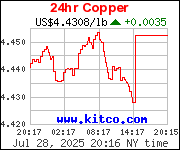Preserve and recycle residential electrical wires
During the use of electrical wires. If you know how to preserve it properly, it will greatly increase the durability of the product. Refer to the article below, we will guide you how to preserve and recycle residential electrical wires!
The detailed instructions below will help you know how to effectively preserve and recycle residential electrical wires.
What factors affect the durability of residential electrical wires?
The durability of residential electrical wires is affected by many factors. Here are the specific factors:
Environmental temperature and humidity
As we know, electric wire cores are made of metal such as aluminum or copper. These metals are directly affected by temperature and humidity from the surrounding environment. If you work in a place with too high a temperature of 70 degrees or more, the wire core may melt, affecting the ability to transmit electricity.

In addition, high humidity also causes electric wires to quickly oxidize, forming rust. This also affects the electrical conductivity of the wire.
Chemical substances
The durability of electrical wires is also affected by chemicals. For electrical wires used in environments with many chemicals, it can lead to oxidation reactions. For example: Copper wires can turn blue under the influence of CO2. This is the factor that can cause the electric wire to corrode, causing dangerous breakage.
Mechanical impact
In the process of using residential electrical wires, you also need to consider the physical factors affecting the product. If the power cord is stretched or subjected to strong impact, it can affect the structure of the wire. Not to mention, if a sharp object collides with it, it can scratch or even break the wire, which is very dangerous…

Instructions on how to preserve electrical wires to increase durability
On the packaging of the power cord manufacturer, users are advised on how to use and preserve the power cord. However, many people often ignore these notes. Below, we will provide detailed instructions on how to preserve electrical wires for your reference:
Store the power cord in a dry place
One of the first things to note when preserving electrical cords is to place the product in a dry place to avoid placing it in locations with water or high humidity. This will avoid water seeping into the conductor, effectively preventing oxidation.
Do not let the power cord come into contact with chemicals
You should also prevent electrical wires from coming into contact with chemicals to prevent chemical corrosion. Protects the insulating shell to limit the risk of short circuits and fires.
Seal the flexible plastic to the waiting wire
In case the electrical wire is not in use, you should use flexible plastic to seal the end of the wire. This will help prevent the entry of dirt, water and insects. This will help protect the wire from damage from environmental influences.
Use additional wire protectors
In cases where the electric wire must be inserted into the wall or connected in locations exposed to water or high humidity. You can use additional protective tools such as: plastic pipes, springs or flexible rubber… These tools will help protect the wire from contact with water, humidity or being bitten by insects and mice. .

Residential electrical wire recycling process
For residential electrical wires, if they need to be replaced after a period of use, you can completely recycle the product. Because the wire has a metal core made of pure copper and aluminum. We can completely utilize this wire core for recycling very effectively.
Benefits of recycling electrical wires
Recycling electrical wires is an activity that brings many benefits to humans. Because:
- Electrical wire cores made of copper or aluminum are precious metals with high economic value. So we can absolutely take that aluminum core and recycle it into useful products for human life.
- Because copper and aluminum will not decompose like normal waste. So burying electrical wires is both ineffective and pollutes the surrounding environment. Recycling electrical wires is also a way to protect our living environment.
Residential electrical wire recycling process
Step 1: You must use a specialized tool such as a knife or scissors to peel off the outer layer of the electrical wire.
Step 2: After getting the metal core inside, you will proceed to clean this wire core. You can use some specialized cleaners to make the wire core cleaner, the higher its value.
Step 3: You can put the wire core into some recycling machines such as industrial wire stripping machines or copper granulators. These machines will help you recycle copper cores quickly and most effectively.

Conclusion:
Above, we have shown you how to effectively preserve and recycle residential electrical wires. To increase the durability of the wire in addition to preservation, it is important that you choose products from reputable brands. If you don’t know where to choose quality residential electrical wires? Please refer to LION residential electrical wire products of Daphaco Electric Cable Joint Stock Company.
Contact hotline: 0283 719 1177 to receive free consultation and quote from our staff!





